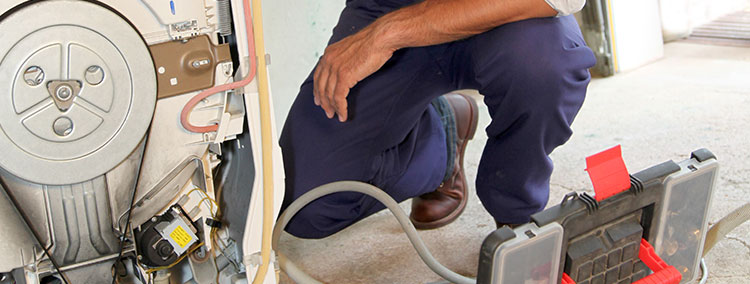
Where would people be without washers? In some families, these are used daily. Most people rely so heavily on them that it seems like the world’s end when the washing machine fails.
You don’t want your washing machine giving out on you in the middle of a cycle or failing to clean your laundry as well as you would want it, do you? To help you out, here are tricks given by washer repair professionals to ensure that your unit functions optimally at all times:
Descale the unit regularly
Descaling your machine regularly helps to prevent limescale buildup. To descale the machine, run a standard wash cycle with no laundry in the drum, substituting a large cup of distilled white vinegar or lemon juice for laundry detergent.
Alternatively, you can use a descaling solution. The frequency with which you must do this is determined by the hardness of the water in your location and the number of loads of laundry.
You should also use a water softener in each wash to prevent limescale from forming in the first place.
Clean your machine regularly
Cleaning your washing machine regularly is equally crucial as descaling. With each use, leftover detergent and softener remain in your machine.
If you go for a long time without cleaning your unit, you will start seeing suds at the end of the cycle. If not handled, these can accumulate and affect efficiency.
Worse, this promotes bacterial growth, resulting in musty odors. To help prevent this residue, you should clean your washing machine regularly.
Begin by running an empty service wash once per month. If one is unavailable, use a hot wash at 60 degrees or above. For the best outcome, clean your machine every three to six months to keep detergent buildup under control.
Don’t overwash your clothes
Many people are guilty of repeatedly overwashing their clothes. Recent research from Chalmers University of Technology discovered that when picking what to put in the laundry basket, many people are more likely to be motivated by disgust than by sustainability.
That means that people tend to wash far more garments than they should, which puts additional strain on the washing machine. It’s also bad for the environment, as excess detergent is consumed, and hundreds of thousands of microplastics are emitted per load.
The next time you throw something in the laundry basket, consider whether it needs to be washed. This way, you get to reduce the amount of washes you have to undertake over time, reducing wear on your machine.
Spread your load
Most people know not to overload their washing machines, but underloading can bring just as many issues. ‘When clothes become wet, they become heavier. Add a towel or two to balance the load if you’re washing a pillow or a small, single duvet.
You only need to ensure you do not exceed your machine’s maximum capacity.
It’s critical to do this because if your washing machine loses balance, it can begin to tremble violently as it prepares to spin. This reduces the unit’s efficiency and can damage both your floor and the machine itself.
Ensure your washer is balanced at all times
To keep your washer in good condition and ensure that it cleans your load well at all times, ensure it is balanced.
Most people know that overfilling the washer may cause the machine to become inefficient and imbalanced. This can also occur when there are too few items in the load.
Adding or removing a few items often solves the problem if the washer becomes unbalanced.
Use a washing machine-safe bag if you are washing items with strings or laces that could become stuck or twisted.
Use the right cycle or mode for the type of load you’re washing. Setting the washer to the “standard” cycle while cleaning many towels may cause the machine to be imbalanced.
Whenever you notice your machine being unstable, hurry, find out why this is the case, and fix it.
Remove clothes from the tub once you are done
You should not leave anything in the tub after washing your clothes. You should leave the door open to allow air to circulate the machine, keeping it dry, free of mold and germs, and extending its life.
Remove the garments as soon as possible so they don’t get stuck on something else or cause damage to your machine. If this happens and you cannot remove whatever is stuck, contact a professional immediately.
Don’t use hot water
Most people prefer hot water to wash their clothes. This is wrong. Most people don’t realize that hot water is bad for your washing machine’s health. When you routinely use hot water, you reduce its efficiency, and you have to get a new unit in no time.
To be safe, clean the washer using warm water instead of hot water. So, even when pre-soaking, always use lukewarm water.
Perform regular maintenance
Taking good care of your washing machine makes the unit more efficient and, at the same time, increases its lifespan by many years.
As a user, you can undertake routine cleaning or hire qualified appliance repair Springfield technicians who have the knowledge and expertise to inspect critical components such as the heater, motor, and pipes.
Maintaining your washer regularly will save you money on repairs and replacements by keeping it working like new year after year.
When you run a properly maintained unit, you not only get excellent cleaning results but also have peace of mind as you know there are fewer chances of your unit breaking down in the middle of a cleaning cycle.
The post Tricks to Make Your Washing Machine More Effective first appeared on HVAC Repair, appliance repair. The post appeared first on Express Appliance Repair